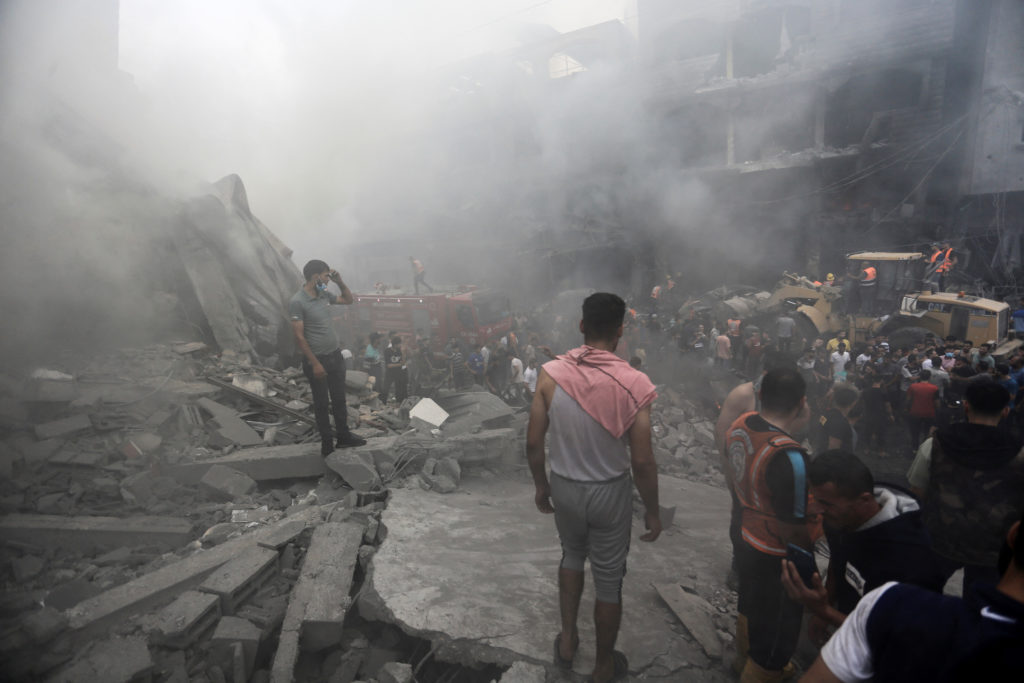In his address, Zelensky proclaimed, "We need a just peace, a peace where our future will be decided only by us." This resolute assertion came on the heels of Russia's allegations that Ukraine had launched drone attacks against Russian energy facilities, including a nuclear power plant in Kursk. The Centre for Countering Disinformation in Ukraine dismissed Russian narratives as attempts at manipulation, asserting that no injuries resulted from the incident, which was promptly contained.
The United Nations' International Atomic Energy Agency (IAEA) highlighted the critical need for protection of nuclear sites amidst the ongoing conflict but has been unable to independently verify the Russian claims regarding the fire.
On the diplomatic front, both November's prisoner swap—exchanging 146 soldiers per side—and significant support from international allies were highlighted. Canadian Prime Minister Mark Carney and U.S. envoy Keith Kellogg were present for the Independence Day celebrations, with Carney announcing a military aid package destined for Ukraine. He affirmed, “Canada will always stand shoulder to shoulder with Ukraine,” reinforcing international solidarity against Russian aggression.
As Ukraine’s Independence Day celebrations took place, Zelensky expressed gratitude for letters of support from global leaders, including British King Charles, whose kind words uplifted the spirits of a nation enduring hardship. Consequently, the UK reiterated its commitment to assist Ukraine through military training and support until the end of 2026.
With ongoing conversations about defense collaboration, both Norway and Sweden announced contributions to bolster Ukraine’s military capabilities. Concurrently, Russia's advances in eastern Ukraine remain a pressing concern, as ongoing diplomacy continues to seek resolution while Zelensky insists on a complete ceasefire.
Amid heightened tensions and strategic discussions around peace and conflict, Zelensky remains resolute: “We believe that by working together, we can put an end to this war and achieve real peace for Ukraine.”
The United Nations' International Atomic Energy Agency (IAEA) highlighted the critical need for protection of nuclear sites amidst the ongoing conflict but has been unable to independently verify the Russian claims regarding the fire.
On the diplomatic front, both November's prisoner swap—exchanging 146 soldiers per side—and significant support from international allies were highlighted. Canadian Prime Minister Mark Carney and U.S. envoy Keith Kellogg were present for the Independence Day celebrations, with Carney announcing a military aid package destined for Ukraine. He affirmed, “Canada will always stand shoulder to shoulder with Ukraine,” reinforcing international solidarity against Russian aggression.
As Ukraine’s Independence Day celebrations took place, Zelensky expressed gratitude for letters of support from global leaders, including British King Charles, whose kind words uplifted the spirits of a nation enduring hardship. Consequently, the UK reiterated its commitment to assist Ukraine through military training and support until the end of 2026.
With ongoing conversations about defense collaboration, both Norway and Sweden announced contributions to bolster Ukraine’s military capabilities. Concurrently, Russia's advances in eastern Ukraine remain a pressing concern, as ongoing diplomacy continues to seek resolution while Zelensky insists on a complete ceasefire.
Amid heightened tensions and strategic discussions around peace and conflict, Zelensky remains resolute: “We believe that by working together, we can put an end to this war and achieve real peace for Ukraine.”

















